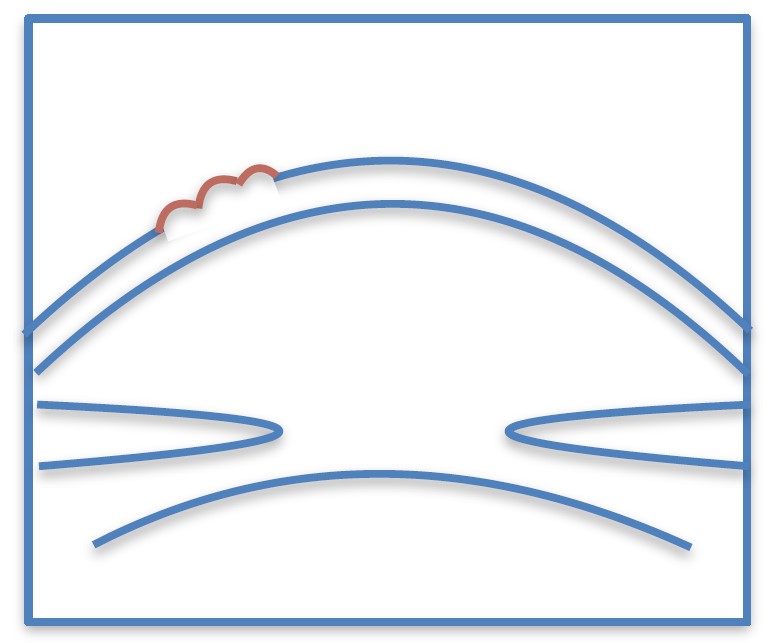
What is RCES?
Recurrent corneal erosion syndrome (RCES) occurs when the corneal epithelium – the surface layer of the cornea – fails to
bind properly to the layer underneath it. This may happen following a scratch to the eye (often, an accidental scratch by a child) or due to an underlying corneal condition such as Map-Dot-Fingerprint dystrophy (also called Epithelial Basement Membrane Dystrophy).
What problems does RCES cause?
The typical symptoms are of a sudden, sharp pain when opening the eye on waking. The eye may water profusely, become very red and uncomfortable, with blurred vision. These symptoms resolve through the day; but may recur the next day, or weeks later.
How can RCES treated?
Initial treatment is to keep the eye lubricated, with drops or gel in the daytime and thicker ointment at bedtime. This protects the healing epithelium from the rubbing effect of the upper lid, and allows it to ‘bed down’ properly. 90% of RCES cases settle with this regime, and if there have been no further episodes for 6 months it is unlikely to recur. Bandage contact lenses – medical continuous-wear lenses – are an alternative, and these are usually worn for 6 months, changed every four weeks. However, all continuous-wear lenses carry a significant risk of infection.
Is there a surgical treatment?
For those cases that fail to resolve, alcohol delamination and superficial keratectomy is the process of using ethanol to remove all the corneal epithelium, and then smoothing the underlying layer. It is performed in the operating theatre, usually under local anaesthetic. At the end of the procedure a bandage contact lens is left on the cornea to protect the eye and reduce post-operative discomfort.
What happens after surgery?
Beneath the contact lens, the epithelium regenerates and grows across the smoothed cornea. This process takes a few days. If the contact lens falls out, do not try to replace it. Antibiotic drops are needed for a couple of weeks after surgery, during which time it’s best not to swim, and to keep the eye as dry as possible when showering or washing hair. The eye may be scratchy and sore, but should slowly settle. Normal painkillers can be taken.
What complications can occur?
As with any operation, there is a small risk of infection. Occasionally, the epithelium can be slow to recover, and may need further treatment. Rarely, the procedure may result in a shift in the refraction of the eye, resulting in a change in the glasses prescription. This usually settles with time.
